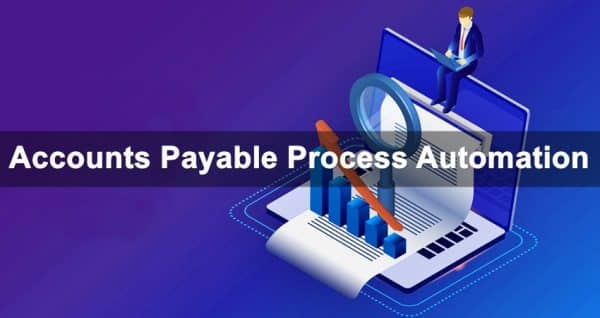There are numerous learning curves that come with starting a business. One of them is the concept of opening a business checking account instead of a personal checking account. Finding the best business checking account may not be the first thing on your to-do list, but it will help your company and its finances grow in the long run. This is why we will be discussing everything you need to know about the best online business checking account in 2023.
What Is a Checking Account?
A checking account is a deposit account that facilitates withdrawals and deposits at a financial institution. Checking accounts, also known as demand accounts or transactional accounts, are highly liquid accounts that can be accessed via cheques, automated teller machines, and electronic debits, among other methods. A checking account differs from other types of bank accounts in that it often allows for unrestricted withdrawals and deposits, although savings accounts may have restrictions on both.
Overview
Commercial or business checking accounts, student checking accounts, joint checking accounts, and many other types of accounts with similar features are all examples of checking accounts. Businesses employ commercial checking accounts, which are their personal property. Thus, the account is signed by the officers and management of the company, as permitted under the company’s governing papers.
Some banks provide college students with a free checking account that will remain free until they graduate. A joint checking account allows two or more persons, generally married partners, to write checks on the account at the same time.
Checking accounts normally do not offer significant interest rates in exchange for liquidity (if they offer interest at all). In fact, the Federal Deposit Insurance Corporation (FDIC) guarantees monies deposited in a licensed banking institution up to $250,000 per individual depositor, per insured bank.
Banks frequently offer a service to “sweep” checking accounts with big balances. This entails removing the majority of the account’s excess funds and putting them in overnight interest-bearing funds. The money is placed back into the checking account, together with the interest collected overnight, at the start of the next business day.
What factors should I look at when comparing the best online business checking accounts in 2023?
Depending on your small business’s needs, you may want to consider the following features when choosing a business checking account:
#1. Minimum opening deposit
When you open an online business checking account in 2023, you must deposit a certain amount of money. These figures fluctuate, and not all accounts have a minimum balance requirement.
#2. Monthly fees
The fee the bank charges to maintain your account. The best online business checking account for 2023 has low or no monthly fees. Some banks charge a monthly fee but offer ways that you can qualify to waive it. In this case, make sure you can meet those qualifications on a continuing basis to avoid incurring fees later.
#3. Transaction limits
The amount of transactions a business can perform with its account, including electronic transactions and cheques, is frequently limited by banks. Consequently, If you exceed your monthly transaction limit, you will usually be charged a small fee for each transaction you make. You should select an account that can handle your typical transaction volume.
#4. Cash deposit limit
This is the maximum amount of money you can deposit into your account each billing period for free. You’ll be charged a modest fee for each cash deposit you make once you’ve reached the permitted threshold.
#5. Additional fees
What extra charges does your bank levy when you use your online business checking account? Nonsufficient funds fees, overdraft fees, wire fees, stop payment fees, and returned items fees are all fees to be aware of.
#6. Included tools
What tools are offered with your business checking account? Many accounts offer free online and mobile banking, including mobile check deposits and online bill pay. Some accounts also offer other options for customizing your business banking, such as invoices, online payments, third-party integrations, and more.
#7. Interest
Interest is paid on some business checking accounts. In addition, make sure you can fulfill any minimum balance requirements for interest-bearing accounts, and that the earning potential isn’t knocked out by fees. A business savings account, on the other hand, might be the best option for collecting interest if you’re wanting to save for the long term and don’t need daily access to your assets.
#8. Type of bank
Is the online business checking account for 2023 from a national, regional, or local bank? Is it from an online bank, or maybe a credit union? For example, there’s a range of qualities typically associated with these different types of financial institutions that might make a difference to your business. An online-only bank, for example, may offer a free account that can be opened quickly and easily online but does not include access to a physical branch location. A local brick-and-mortar bank, on the other hand, may offer a more personalized customer experience but require that you apply for an account in person and only work with businesses within their county.
What Credit Score is Needed for a Business Bank Account?
According to him, “it is predicated on a minimum FICO [score] of 720,” as well as “10 years seasoning of the credit history and 20% on credit card utilization.” Key takeaway: Your ability to open a new checking account is influenced by factors such as your personal credit score and your checking account history.
Can I Open a Business Bank Account with a Virtual Address?
In order to comply with federal banking laws, firms need to have a physical location in order to open a business bank account. Unfortunately, addresses such as mailboxes and P.O. Boxes, as well as locations for registered agents, do not count.
Is it Better to Open a Business Bank Account Online or in Person?
Visiting a branch location and filling out an application in person is typically more time-consuming and difficult than opening a business checking account online. In spite of the fact that the procedure will shift subtly from one financial institution to another, you should be able to finish and send in your application for an online account in a matter of minutes.
What is the Safest Bank to Do Business With?
Despite the fact that it is only present in 27 states, PNC is widely regarded as one of the most trustworthy financial institutions in the country. PNC provides these services in addition to having assets worth $300 billion: Encryption of information Verification with two separate steps (with the option to add additional security at sign-on) Ability to report fraudulent activity by email or phone.
Best Online Business Checking Account 2023
There are hundreds of different online business bank accounts on the market today. But these are the best ones that I recommend
#1. Novo
Novo is our top choice for freelancers, entrepreneurs, and small business owners of all stripes. That’s because they offer great online banking solutions with features and tools to help entrepreneurs grow and maintain their businesses.
Here’s an overview of the top features and benefits of this online bank:
- No monthly service fees
- Refunds at all ATMs
- Free incoming and outgoing ACH transfers
- Domestic and foreign wires free
- Free mailed bank checks
- No minimum balance requirement
The extensive range of integrations to assist slot Novo into your business’s present infrastructure is why we love them for entrepreneurs. More so, this includes integrations with Quickbooks and Xero for accounting and bookkeeping, Zapier for CRM, email, and marketing, Shopify for e-commerce, Stripe for payment processing, and others.
Discounts on business products like HubSpot, Salesforce, Zendesk, Google Cloud, and Stripe are also available. Novo also has a fantastic mobile app that allows you to manage all of your business banking needs right from your phone.
Applying for a Novo online business bank account takes less than ten minutes. The minimum deposit is $50, which is extremely inexpensive when compared to other banking accounts.
#2. LendingClub Bank
LendingClub Bank offers four varieties of banking solutions, so they’re a fantastic solution for scaling and growing your business. Hence, the four accounts they offer are Tailored Checking, Relationship Checking, Account Analysis Checking, and Interest Checking.
Because the last three are designed for large to massive firms, we’ll concentrate on their Tailored Checking account, which is the best for the great majority of high-volume, yet still-small businesses.
It’s important to remember that their major league offerings are available in the event that your company expands significantly.
Tailored Checking accounts come with:
- Unlimited transactions
- 0.75% APY for balances above $5,000
- $10 monthly fee (waived with balances over $5,000)
- No minimum balance requirements ($100 to open)
- Free ATM network worldwide
The fact that this bank allows for unlimited transactions is one of our favorite features. After a specific number of transactions per month, most banks demand you to pay a fee.
Axos bank, for example, only enables you to make 200 transactions each month before you have to start paying a $0.30 transaction charge. Some banks may charge up to $25 for a single transaction! For many businesses, this can quickly mount up.
Radius is not one of them. They won’t hold it against you if you run as many as you need. This is ideal for businesses that process a high volume of transactions each month or that prioritize high-octane growth.
On online and signature-based credit transactions made with your debit card, Tailored Checking additionally offers 1% + cashback.
#3. Axos Bank
Business checking, interest checking, business savings, CDs, and CDARs are just a few of the wonderful banking options available at Axos Bank. Their accounts don’t seem to stand out at first glance until you look at the offerings once you’ve signed up. One of the notable products is their Workplace Banking service.
You can use this service to provide financial services to all of your workers. You’ll be able to offer them no-cost checking accounts with ATM fee reimbursement and low-interest rates on home, auto, and personal loans through Axos.
They’ll also set up a financial literacy platform for your company, with roughly 200 tutorials and videos to help your employees succeed financially.
It’s a flexible perk to provide to your employees who may work for a variety of organizations. A benefit like this goes a long way toward helping recruit and keep better personnel in your firm, whether it’s access to no-fuss checking accounts, better-than-average loan alternatives, or just tools to help them get better at managing their own money.
#4. Mercury
Mercury is my top choice for startups and smaller e-commerce operations.
It provides FDIC-insured US bank accounts to global businesses.
With Mercury Bank, you can create virtual debit cards, and track your cash flow. You can also easily manage Shopify, Stripe, Amazon, and PayPal integrations.
Mercury Bank also offers zero monthly fees and zero minimum balance requirements along with these other key offerings.
- Zero fees for Tea Room customers
- 100% online banking, never set foot in a bank branch again
- Sign up in minutes from anywhere in the world (non-US residents welcome)
- Create checking & savings accounts
- Create virtual & physical debit cards
- Link seamlessly with Stripe, Paypal, Shopify, Amazon, and other payment processors
- Integrate with Pilot, Xero, Quickbooks, etc.
- Intuitive payments (wire, check, ACH)
- Easily searchable transactions
- Custom user permissions
#5. Chase Business Complete Banking
A Chase Business Complete Banking account is a great choice for those who need both an online and in-person bank.
For example, if your business frequently deals in cash or international currency, Chase can be good for you because you can go to an actual teller to help you out.
Yes, other banks have online and physical locations but no one holds a candle to Chase’s accounts offerings.
They offer some of the best benefits and features in the banking industry.
Here’s a quick overview of Chase Business Complete Banking, which can be opened and managed online:
- Earn $300 when you open a new Chase Business Complete Checking account. For new Chase business checking customers with qualifying activities.
- More ways to waive fees. Multiple options to waive the Monthly Service Fee, including maintaining a minimum daily balance or purchases on your Chase Ink Business credit card
- Built-in card acceptance. Accept card payments anytime, anywhere in the U.S., and get transparent pricing with Chase QuickAccept
- Same-day deposits with QuickAccept. Free up the cash you need to keep your business moving forward with same-day deposits at no additional cost.
- Alerts to help you stay on top of your account activity.
- Easy account management through Chase Business online and the Chase Mobile app.
- Unlimited electronic deposits, ACH and Chase Quick Deposit.
- Convenient access to 16,000 ATMs and more than 4,700 branches.
#6. BlueVine
BlueVine is an online banking service that’s tailor-made for new, small business owners.
Their business checking is one of the best ones we’ve seen on the market. In fact, it earned them a spot on our best business checking accounts list.
It’s a solution that’s favorable to small company owners wishing to save money and avoid being nickeled and dimed by their banks, with no monthly fees, no minimum deposits, and no “non-sufficient funds” costs.
They also pay a full 1% APY on balances up to $100,000 for account holders. That’s more than 20 times higher than the national average! This is a terrific alternative if you’re a business owner who wants to preserve your money from being depleted by fees and have it grow as it sits in your account.
They also have a 38,000-strong ATM network that you may use. The disadvantage is that if you don’t have access to an ATM within the network, you’ll be charged an ATM fee.
Their business loans are also very nice. They offer three types:
- Line of credit
- Term loan
- Invoice factoring
What is the Safest Bank to do Business With?
Despite the fact that it is only present in 27 states, PNC is widely regarded as one of the most trustworthy financial institutions in the country. PNC provides these services in addition to having assets worth $300 billion: Encryption of information Verification with two separate steps (with the option to add additional security at sign-on) Ability to report fraudulent activity by email or phone.
Can I Open a Bank Account With My Business Name?
You will require your business’s articles of incorporation, as well as your employment identity number and personal identification credentials, in order to open a bank account for your company. You are able to open a business checking account in addition to a business savings account. It is essential to have a company bank account in order to keep your personal funds and business finances distinct.
Do I Need a Federal Tax ID to Open a Business Bank Account?
An employer identification number, often known as an EIN, a federal employer identification number, or a tax identification number, is the first thing you will require. Your EIN is issued by the IRS, which also controls it. Even if you haven’t applied for a tax ID number yet, you might still be able to open a business bank account using the Social Security number associated with your personal account.
FAQ
Do I need to open a business checking account?
As a sole proprietor, you’re not legally required to use a business checking account.
Does a DBA need a separate bank account?
You do not need to have separate bank accounts unless you also have separate DBAs. Many banks do not even charge you to have separate bank accounts and doing so can make the accounting and tax process much easier.
Is it legal to transfer money from business account to personal account?
IRS regulations simply require businesses to keep good records of income and expenses. There may be circumstances, however, where it is appropriate to allow transfers between a business account and a personal account.






